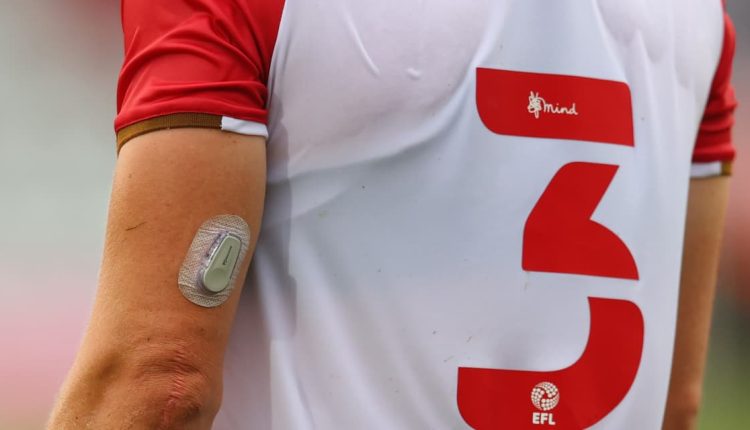Perhaps the market’s latest weight-loss craze has played out.
The stock market’s profile has been changed dramatically by weight-loss drugs such as
Novo Nordisk
‘s (ticker: NVO) Wegovy. Novo and weight-loss rival
Eli Lilly
(LLY) have become the sexiest stocks, while shares of diabetes and sleep-apnea remedies have been bounced from the party.
In recent days, Wall Street analysts speculated that a world slimmed by the so-called GLP-1 drugs would be bullish for airlines such as
United Airlines Holdings
(ticker: UAL)—as lighter passengers save fuel—and bearish for restaurant plays such as the software vendor
Toast
(TOST)—as customers eat out less.
Yes, the GLP-1 trade seems overdone, for now.
That’s the thinking of Jefferies analyst Matt Taylor, who upgraded his rating Monday on insulin pump maker
Insulet
(PODD) from Hold to Buy—saying that the stock’s 50% drop since May has trimmed its handsome valuation to levels that now account for GLP-1 impact on diabetes prevalence. He still sees plenty of opportunity for Insulet and its pump rival
Tandem Diabetes Care (TNDM), as well as for glucose-monitor maker
DexCom
(DXCM), so he reiterated his Buy ratings on the latter two names.
Insulet stock closed up 3.5% Monday, to $165.56, amid a flat market. Tandem stock was up 5.9%, to $21.99.
As Barron’s discussed in a September cover story, the profound benefits of GLP-1 drugs such as Novo’s Ozempic and Lilly’s Mounjaro have captured Wall Street’s imagination. The GLP-1 craze has also hammered once-popular stocks like Insulet and DexCom.
A doctor survey convinced Jefferies’ Taylor that lots of patients will continue to develop Type-2 diabetes in the coming years, with enough progressing to insulin use to keep Insulet and Tandem growing apace.
“[Insulet’s] growth opportunity will not be materially crimped by GLP-1 or other weight-loss-drug use,” said Taylor, in Monday’s upgrade. He thinks that when investors see pumps sales rising unabated, Insulet stock will rise from its recent levels of around $164, to $240.
Taylor’s price targets entail pretty high multiples for his stocks. His $240 target for Insulet is 113 times his forecast for 2024 earnings per share of $2.12. His DexCom target of $155 is 99 times his 2024 estimate for earnings of $1.57 a share. It’s clear that medical-device analysts like him are gaining heart after the GLP-1 beating suffered by their sector this summer.
The GLP-1 drop in medtech stocks “is probably overdone,” wrote Morgan Stanley analyst Patrick Wood in a recent note. If as many as 30% of Type-2 diabetes patients adopt GLP-1 drugs by 2027, Wood’s modeling foresees just a 4% decline in those that need insulin. Still, he thinks it too early to upgrade his ratings on DexCom and Insulet from Equal Weight.
GLP-1 drugs work, in part, by quieting hunger signals in the brain. The drugs’ effect on Wall Street’s brain have been in evidence this past week.
On Monday, Mizuho analyst Dan Dolev cut his rating on the restaurant software firm Toast to Neutral from Buy. His downgrade of the $18 stock was driven primarily by his observation that volumes are slowing at Toast’s customers, and his worry about Toast’s loans to restaurants.
But the Mizuho analyst worries that GLP-1 drugs will become a drag on the restaurant industry. “Longer term, we believe the rise of GLP-1 drugs such as Ozempic for Type-2 diabetes & weight loss could lower restaurant spend,” wrote Dolev.
Last week, Jefferies tasked its entire research team to consider the implications of a slimmer society from GLP-1s. The Thursday report generated some headlines, with its speculations that airlines could benefit, while industries such as food packaging could suffer.
Airlines biggest expense is fuel, noted Jefferies analyst Sheila Kahyaoglu. If every passenger dropped 10 pounds, a carrier such as United could save 1,800 pounds per flight. That would save $80 million a year at current fuel prices and would boost United’s earnings by 2%, or 20 cents a share.
Meanwhile, her colleague Phil Ng speculated that the paper and packaging companies he covers could see reduced demand from food service customers, if GLP-1 curb America’s appetite.
In the end, however, neither of the Jefferies analysts changed their views on their sectors, after considering the implications of GLP-1 use.
For most stocks, perhaps the implications of widespread weight loss have been priced-in.
Write to Bill Alpert at [email protected]
Read the full article here

